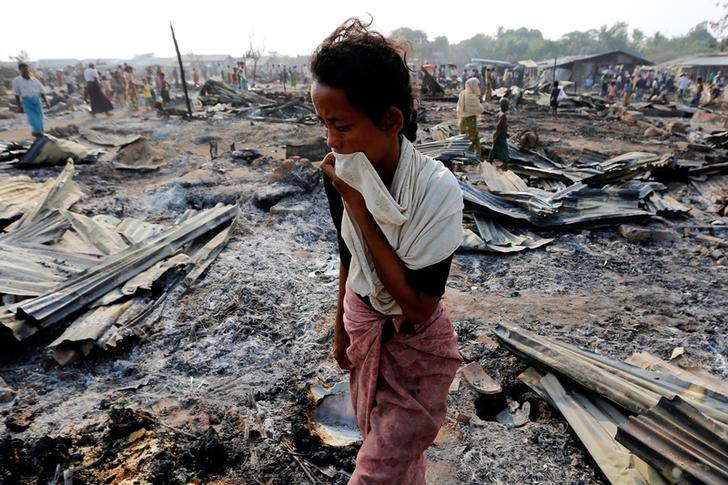
Rakhine state has seethed with ethnic hatreds for years, with persecution of the Rohingya minority culminating in a ruthless army campaign against them that started last August and sparked a mass exodus.
Yet the Buddhist Rakhine community, some of whom are accused of aiding soldiers in the crackdown, has also frequently clashed with the central government and tensions have soared since riots rocked a Rakhine town in January.
Aye Maung, once the chairperson of an ethnic Rakhine political party, was arrested after the unrest for allegedly making an inflammatory speech against the central government.
State-backed media said he railed against the government for treating Rakhine people as 'slaves' and said it was the "right time" for the community to launch an armed struggle.
The following day ethnic Rakhine protesters briefly seized a government building in Mrauk U, an ethnic Rakhine town.
Police opened fire on the mob and killed seven people, souring already bitter relations between the community and local authorities.
Aye Maung, who faces charges of high treason, incitement and unlawful association, has insisted on his innocence and accused local authorities of a politicised witch-hunt.
"We think that the administrative side wants to charge us. That's why the judicial pillar must stand firmly," he told AFP at the heavily-guarded court in the state capital Sittwe.
The deadly riots exposed the bitter and complex ethnic fault-lines in Rakhine, where some 700,000 Rohingya Muslims based further north have fled over the border into Bangladesh since a brutal military campaign began in August.
Members of the ethnic Rakhine Buddhist population are accused of assisting the military in a campaign of murder, rape and arson against the Rohingya - violence the UN brands "ethnic cleansing".
Myanmar staunchly denies the charges.
Unlike the Rohingya Muslims, the Rakhine are recognised by the government as an ethnic minority but are often marginalised under a system that favours the nationally dominant Bamar (Burmese).
Some 100 protesters rallied outside the courthouse in support of both Aye Maung and fellow detainee and writer Wai Hin Aung, who faces the same charges for a speech at the same event.
"We feel very sorry to see Dr Aye Maung and Wai Hin Aung like this. They are working for the people," 53-year-old Tin Phyu said.
Gabrielle Aron, an independent analyst in Myanmar, said a guilty verdict would be widely interpreted as a move to "politically oppress the Rakhine people".
The proceedings "have the potential to further destabilise an already tense situation," she added.









1732354127-0/Untitled-design-(3)1732354127-0-270x192.webp)







COMMENTS
Comments are moderated and generally will be posted if they are on-topic and not abusive.
For more information, please see our Comments FAQ